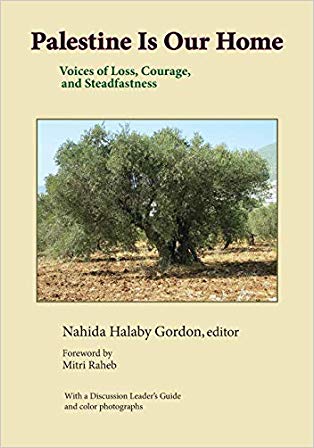 Within these pages are the memories of Palestinians ?- housewives, pastors, physicians, prisoners, professors, refugees, researchers, students, teachers, and university administrators living either in Palestine, refugee camps, or exile - who have suffered loss and yet have kept their identity as Palestinians and through perseverance have kept their culture vibrant and alive. It is hoped that in meeting these people, the reader will understand the suffering and loss of Palestinians; see their longing for freedom and peace; and join in supporting their struggle for justice. Before the creation of Israel, Palestine was a multicultural society that accepted religious refugees. In one of the narratives, the reader will meet an Armenian-Palestinian-American, whose family survived the Armenian genocide. They came to Palestine to seek refuge with a wish to live, raise their families, and contribute to the culture of their new home. They embraced the culture, learned the language, and most importantly, contributed to the rich diversity of Palestinian society. At the beginning of the twentieth century, there was a s
Within these pages are the memories of Palestinians ?- housewives, pastors, physicians, prisoners, professors, refugees, researchers, students, teachers, and university administrators living either in Palestine, refugee camps, or exile - who have suffered loss and yet have kept their identity as Palestinians and through perseverance have kept their culture vibrant and alive. It is hoped that in meeting these people, the reader will understand the suffering and loss of Palestinians; see their longing for freedom and peace; and join in supporting their struggle for justice. Before the creation of Israel, Palestine was a multicultural society that accepted religious refugees. In one of the narratives, the reader will meet an Armenian-Palestinian-American, whose family survived the Armenian genocide. They came to Palestine to seek refuge with a wish to live, raise their families, and contribute to the culture of their new home. They embraced the culture, learned the language, and most importantly, contributed to the rich diversity of Palestinian society. At the beginning of the twentieth century, there was a s
 Within these pages are the memories of Palestinians ?- housewives, pastors, physicians, prisoners, professors, refugees, researchers, students, teachers, and university administrators living either in Palestine, refugee camps, or exile - who have suffered loss and yet have kept their identity as Palestinians and through perseverance have kept their culture vibrant and alive. It is hoped that in meeting these people, the reader will understand the suffering and loss of Palestinians; see their longing for freedom and peace; and join in supporting their struggle for justice. Before the creation of Israel, Palestine was a multicultural society that accepted religious refugees. In one of the narratives, the reader will meet an Armenian-Palestinian-American, whose family survived the Armenian genocide. They came to Palestine to seek refuge with a wish to live, raise their families, and contribute to the culture of their new home. They embraced the culture, learned the language, and most importantly, contributed to the rich diversity of Palestinian society. At the beginning of the twentieth century, there was a s
Within these pages are the memories of Palestinians ?- housewives, pastors, physicians, prisoners, professors, refugees, researchers, students, teachers, and university administrators living either in Palestine, refugee camps, or exile - who have suffered loss and yet have kept their identity as Palestinians and through perseverance have kept their culture vibrant and alive. It is hoped that in meeting these people, the reader will understand the suffering and loss of Palestinians; see their longing for freedom and peace; and join in supporting their struggle for justice. Before the creation of Israel, Palestine was a multicultural society that accepted religious refugees. In one of the narratives, the reader will meet an Armenian-Palestinian-American, whose family survived the Armenian genocide. They came to Palestine to seek refuge with a wish to live, raise their families, and contribute to the culture of their new home. They embraced the culture, learned the language, and most importantly, contributed to the rich diversity of Palestinian society. At the beginning of the twentieth century, there was a s